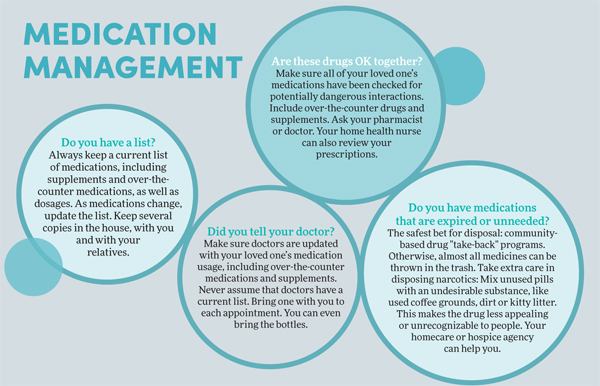6 Safety Tips for Prescription Medicines
 Be alert for signs of side effects Be alert for signs of side effects- Check medications for expiration dates
- Don’t share prescription medicines
- Keep medicine in a safe place, away from heat and small children
- Keep a list of medications, dosages and reasons they were prescribed
- Keep a list of when and how medicines are taken
Did you know?
Side effects can impact thinking and balance. Often, you or your professional caregiver will be the first – and maybe the only – person to notice if your loved one doesn’t seem right. Some commonly used drugs are known to make thinking and balance worse in aging adults. These include:
- Anticholinergics, which include drugs for overactive bladder, itching/allergy, vertigo and nausea, and certain drugs for nerve pain or depression. Diphenhydramine, or Benadryl, is a commonly used anticholinergic.
- Sedatives and tranquilizers, often prescribed for sleep or anxiety. Examples include zolpidem and lorazepam, brand names Ambien and Ativan, respectively.
Contact your loved one’s doctor or other health care provider if something doesn’t seem right to you. You know your loved one the best. 

 Secrets No One Told You About Family Caregiving Secrets No One Told You About Family Caregiving
|